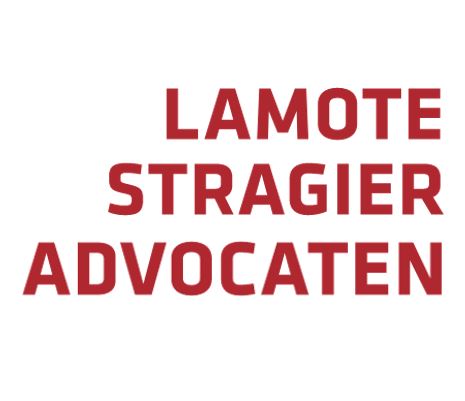Vennootschapsrecht:
recente wetgeving én rechtspraak anno 2024
Mr. Joris De Vos en mr. Michaël Heene (DLA Piper)
Webinar op donderdag 21 november 2024
De nieuwe wet op de private opsporing
Dhr. Bart De Bie (i-Force) en mr. Stijn De Meulenaer (Everest)
Webinar op donderdag 17 oktober 2024
Reform of the Belgian Companies Code: towards a more simple and competitive Belgian Corporate Law (Lawsquare)
Author: Bart Vanstaen (Lawsquare)
Date of publication: 11/08/2017
At a glance
A draft bill introducing a completely new Belgian Companies Code (new BCC) has been approved by the Belgian Council of Ministers on 20 July 2017. We expect the bill to be adopted by Parliament by the end of this year.
The draft bill aims at modernising Belgian company law by making it more simple, flexible and coherent, to enable Belgium to become a more competitive and attractive place of establishment for companies.
Important changes include reducing the number of company’s forms and abolishing the capital requirements in the private limited liability company.
The large set of corporate reorganisation possibilities for Belgian companies will be maintained and further finetuned in terms of procedures to be followed. Furthermore, the new BCC broadens the possibilities for cross-border restructurings, by expressly allowing cross-border demergers and cross-border conversions of companies (inbound and outbound).
In detail
The draft bill proposes a very thorough reform of the Belgian Companies Code. Below is an overview of some of the major changes proposed.
1. Reducing the number of company’s forms
Belgium currently has a large number of company’s legal forms. In the new BCC, only the following company’s types will remain:
- the ordinary partnership, with or without legal personality;
- the limited partnership (CommV/S. Comm);
- the private limited liability company (BV/SRL);
- the cooperative company (CV/SC);
- the public limited liability company (NV/SA);
- the European company (SE) and the European cooperative company (SCE).
Currently, the public limited liability company (NV/SA) is the most frequently used legal entity form, even for smaller companies.
In the new BCC, the private limited liability company (BV/SRL) will become the new ‘by-default’ company type for small and large businesses (including subsidiaries of multinational companies). The NV/SA will be mainly intended for very large businesses with several shareholders and for listed companies.
The cooperative company, which is currently often used because it allows an easy entry and exit of shareholders, will be reserved for companies with a ‘real’ cooperative purpose (i.e. companies having as purpose the promotion of the economic and/or social activities of its shareholders).
The Economic Interest Grouping (ESV/GIE), the agricultural company (LV/S. Agr.), the unlimited liability cooperative company (CVOA/SCRI) and the frequently-used partnership limited by shares (Comm.VA/SCA) will be abolished.
2. Abolishing the capital requirements for private limited liability companies
The share capital, considered as an outdated concept which does not really protect the creditors, is abolished for private limited liability companies.
Although there will no longer be a ‘minimum share capital’ (currently set at EUR 18,550), the founding shareholders must ensure that the company has a sufficient equity upon incorporation. This needs to be justified in a detailed financial plan.
Furthermore, the provisions for distribution of profits are extensively modified and are made subject to a double test:
- net assets test: first, the general shareholders’ meeting should establish that the company’s net assets remain positive after the distribution (similar to the currently applicable requirements);
- liquidity test: second, the company’s management body must establish that, after the distribution, the company will continue to be able to pay its debts as they become due for a period of at least 12 months; this decision of the management body must be justified in a report which must be reviewed by the company’s statutory auditor.
Finally, it will be possible for private limited liability companies to distribute profits of the ongoing financial year, so-called ‘interim dividends’ (now, this is only possible for public limited liability companies).
3. Introducing multiple-vote shares
The new BCC introduces the possibility to issue multiple-vote shares. It will be possible to disconnect the link between the contribution paid for a share and the voting rights attached thereto. For listed companies, restrictions apply: maximum 2 votes per share, and only for fully paid-up shares that have been held by the same shareholder for an uninterrupted period of 2 years.
4. Creating new types of securities for private limited liability companies
The prohibition for private limited liability companies to issue warrants and convertible bonds will be abolished. Also other types of securities developed in legal practice, such as reverse convertible bonds, will be possible.
5. Setting a cap on director’s liability
The new BCC introduces a general cap on the liability for directors.
The amount of the liability cap will depend on the company’s turnover and balance sheet total and would range between EUR 125k and EUR 13m.
6. Removing some impediments
Some rules and restrictions which give rise to practical difficulties are removed.
For example, it will be possible for private and public limited liability companies to have only one shareholder.
Furthermore, the shareholders’ absolute right to dismiss the directors of an NV/SA at any time, without cause and without severance pay, will no longer be mandatory law.
7. The registered office will determine the applicable company law
Currently, the applicable company law is determined based on the location of the company’s actual and effective place of management.
In the new BCC, the registered office will prevail.
The means that Belgian company law will apply to companies having their registered office in Belgium, irrespective of where the actual place of management is located.
The registered office can be located in Belgium upon incorporation of the company, but it can also be moved to Belgium under the procedure of the inbound cross-border conversion (with continuation of legal personality). Also outbound cross-border conversions are expressly provided for in the new BCC.
Impact of the reform
The impact cannot be overestimated. Given the extensive upcoming changes, the new BCC will affect every single Belgian company in various ways. Consequently, it will lead to the need of reassessing every corporate organisation in the light of the challenges arising and opportunities created.
Timing
The new code will be applicable for an existing company as of the start of the financial year beginning one year after the publication of the new BCC in the Belgian Official Gazette.
For questions about this reform, please contact Bart Vanstaen.
» Bekijk alle artikels: Vennootschappen & Verenigingen
















